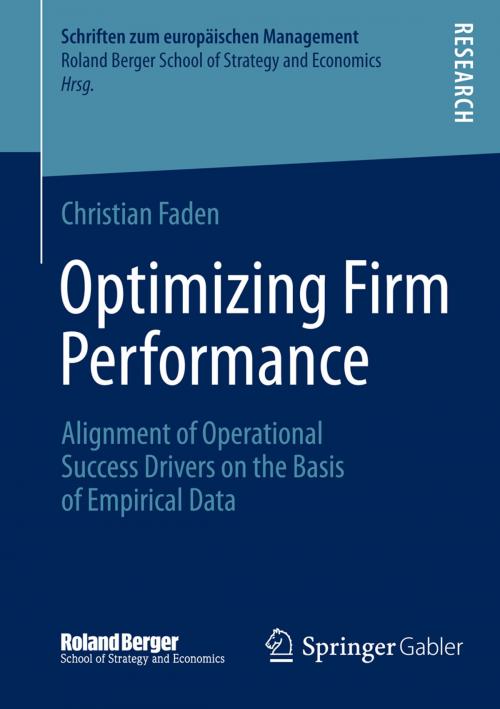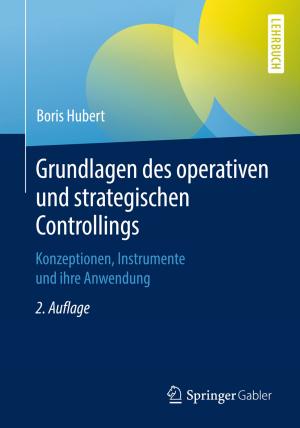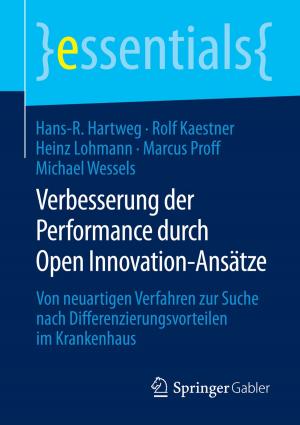Optimizing Firm Performance
Alignment of Operational Success Drivers on the Basis of Empirical Data
Business & Finance, Management & Leadership, Production & Operations Management, Management| Author: | Christian Faden | ISBN: | 9783658027469 |
| Publisher: | Springer Fachmedien Wiesbaden | Publication: | July 31, 2013 |
| Imprint: | Springer Gabler | Language: | English |
| Author: | Christian Faden |
| ISBN: | 9783658027469 |
| Publisher: | Springer Fachmedien Wiesbaden |
| Publication: | July 31, 2013 |
| Imprint: | Springer Gabler |
| Language: | English |
Academic research has identified several operational drivers in manufacturing companies that have an effect on either the physical production of goods or its distribution: working capital requirements, manufacturing performance, supply chain performance and supply chain risk. Despite the fact that these four operational drivers have been operationalized in empirical studies and theoretical discourses, no-one has yet conducted a holistic study of how they interrelate and what specific contribution they make to overall firm performance. The key question addressed by this study is therefore how companies should align these operational drivers of excellence to achieve superior firm performance. The results are based on a universe of 274 top-class manufacturing companies based in Germany, Switzerland or Austria and more than 15 interviews with top executives. By consequence, a trade-off exists: Strong firm performance requires a significant level of supply chain risk at the expense of working capital performance. Companies that accept a reasonable level of supply chain risk while maintaining high manufacturing and supply chain performance outperform the lowest-performing reference group by 14% in terms of sales, sales growth, profitability and market share ("firm performance").
Academic research has identified several operational drivers in manufacturing companies that have an effect on either the physical production of goods or its distribution: working capital requirements, manufacturing performance, supply chain performance and supply chain risk. Despite the fact that these four operational drivers have been operationalized in empirical studies and theoretical discourses, no-one has yet conducted a holistic study of how they interrelate and what specific contribution they make to overall firm performance. The key question addressed by this study is therefore how companies should align these operational drivers of excellence to achieve superior firm performance. The results are based on a universe of 274 top-class manufacturing companies based in Germany, Switzerland or Austria and more than 15 interviews with top executives. By consequence, a trade-off exists: Strong firm performance requires a significant level of supply chain risk at the expense of working capital performance. Companies that accept a reasonable level of supply chain risk while maintaining high manufacturing and supply chain performance outperform the lowest-performing reference group by 14% in terms of sales, sales growth, profitability and market share ("firm performance").















